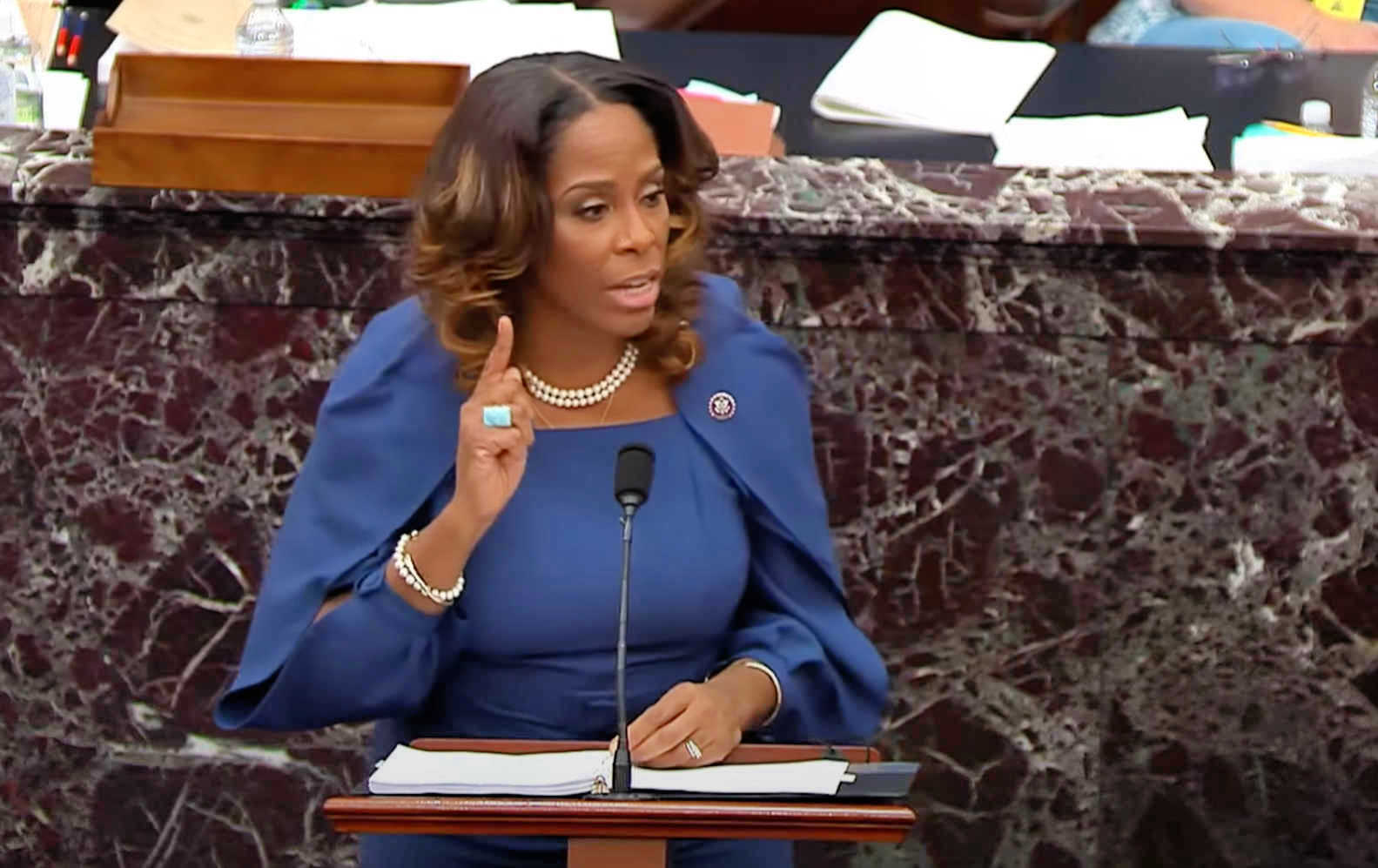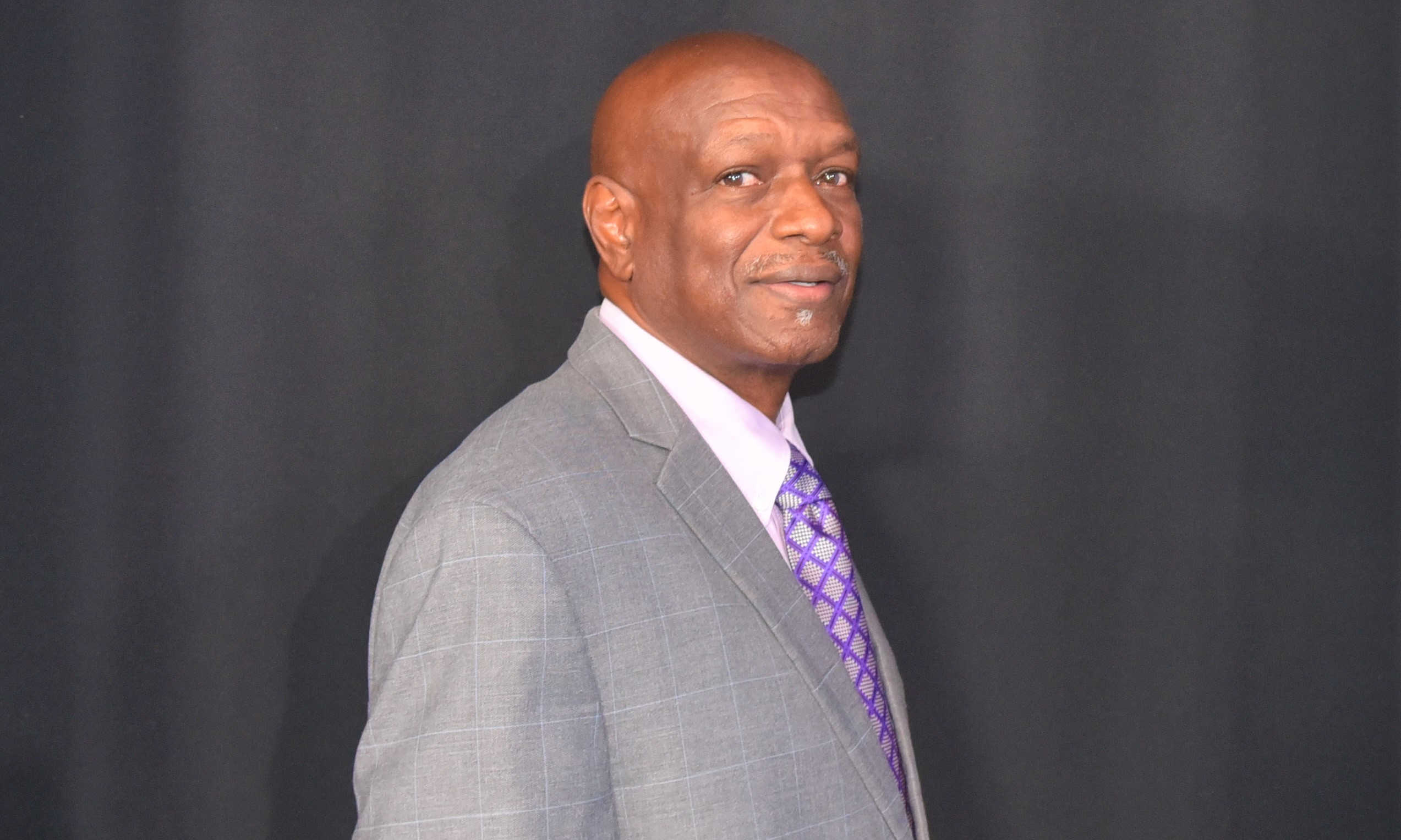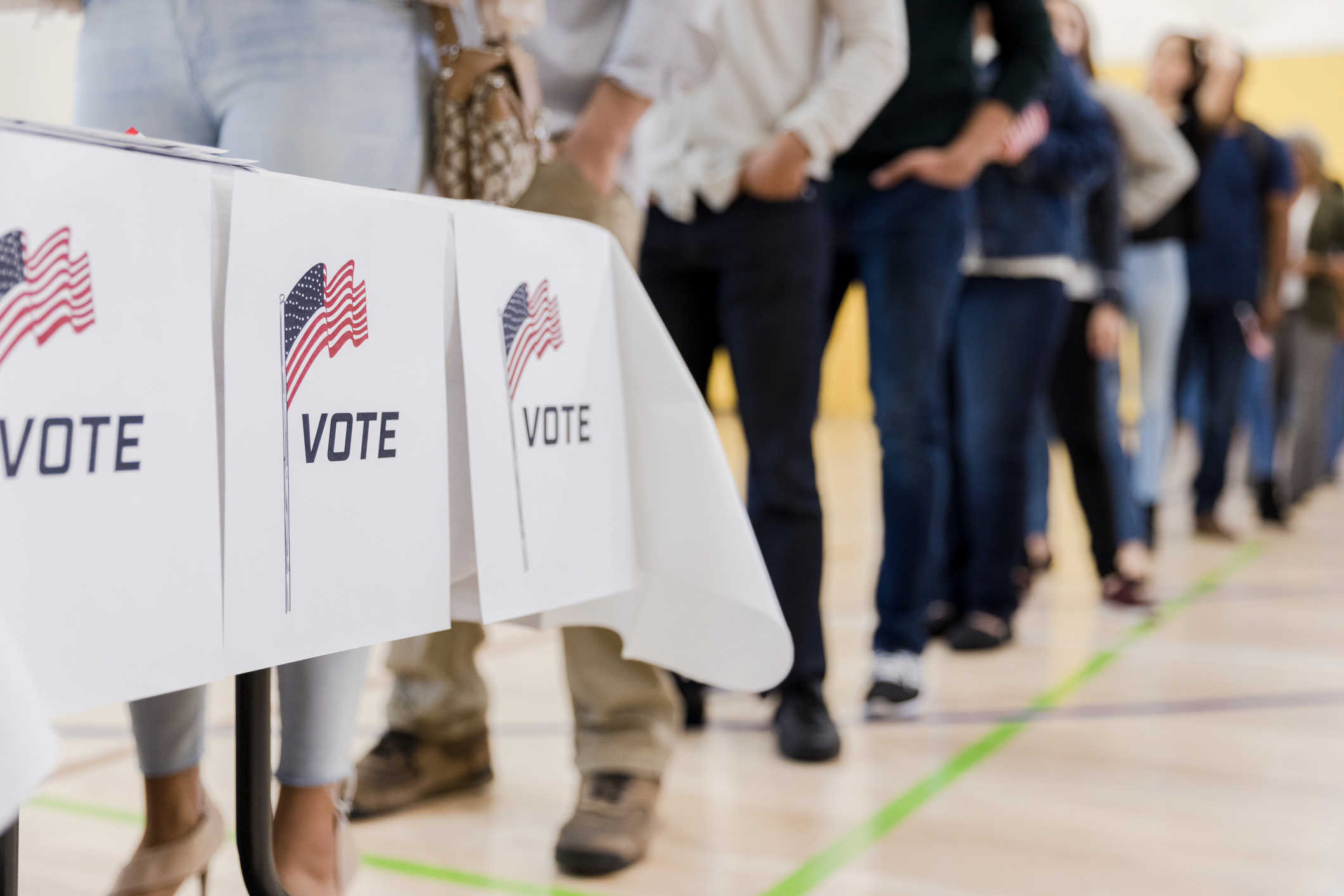Opinion
Delegate Plaskett Charts a Course for the Virgin Islands: A Blueprint for Resilience and Prosperity

Recent announcements from the Federal Emergency Management Agency (FEMA) have marked a pivotal moment for the Virgin Islands, heralding a new era of growth and development. Over $928 million allocated for the reconstruction of Roy L. Schneider Regional Hospital, coupled with $834 million for the Juan F. Luis Hospital, positions the territory as an emerging health care leader in the region. Investments of $530 million for Charlotte Amalie High School, $247 million for Central High School, and $133 million for Julius Sprauve School underscore a commitment to transforming the educational landscape for future generations. Furthermore, President Biden’s recent adjustment to the federal match for rebuilding efforts enhances the territory’s financial capability to leverage this historic influx of nearly $12 to $15 billion—aimed at benefiting our population of under 100,000—in a transformational manner.
Back in October 2017, amidst the aftermath of Hurricanes Irma and Maria, I reached out to then Governor Kenneth Mapp with a vision. I emphasized our unique position to not only recover but to forge a future where the Virgin Islands thrives—through advanced technologies, energy solutions, and fortified infrastructure. My appeal for significant federal assistance went beyond mere repairs, envisioning a rebuilt territory defined by resilience, efficiency, and strength. Despite facing skepticism, my commitment to this vision remained unwavering.
My office’s persuasive efforts highlighted how pre-existing inadequacies in federal support for our critical infrastructure magnified the devastation of the hurricanes. This advocacy paved the way for crucial amendments under the Bipartisan Budget Act of 2018, enabling FEMA to adopt resilient rebuilding standards in the Virgin Islands that surpassed previous limitations. In partnership with Governor Bryan’s administration, we ensured FEMA’s alignment with these enhanced standards, emphasizing our territory’s needs and the legislative intent to support robust recovery.
The recent directive by President Biden, reducing the local match requirement for federal grants, marks a significant step forward. This adjustment reduces the financial burden on the Virgin Islands, facilitating the advancement of essential projects to rebuild our schools, healthcare facilities, and critical infrastructure more effectively and efficiently.
The path forward calls for unprecedented collaboration among all stakeholders. I have proposed, and Governor Bryan has endorsed, the idea of hosting a summit. This gathering will bring together local and federal officials, private sector representatives, and experts to outline a comprehensive strategy for the Virgin Islands’ renewal. Through public engagement, expert discussions, and collaborative planning, this summit will lay the groundwork for a prosperous future, rooted in innovation, transparency, and unity.
As we stand on the brink of a transformative period, it’s imperative to recognize that this journey transcends individual perspectives and interests. It’s about our collective future, our shared prosperity, and the legacy we will leave for generations to come in the Virgin Islands.
Opinion
Op-Ed: Virgin Islands Port Authority Propels Economic Growth with Airport Modernization Initiatives

The Virgin Islands Port Authority (VIPA) Board of Governors recently made a pivotal decision by endorsing VIports Partners as the chosen consortium for the public-private partnership tasked with modernizing the Cyril E. King and Henry E. Rohlsen Airports. This decision marks a significant advancement towards enhancing the infrastructure of these crucial facilities in the U.S. Virgin Islands.
VIports Partners, a consortium comprised of international experts in airport redevelopment and management, includes prominent organizations such as Aecon Group, Inc., Tikehau Star Infra, AVPorts, LLC, Corgan Associates, Inc., Consigli Construction, and the local J. Benton Construction. This group brings a wealth of experience and expertise to the project, ensuring a comprehensive approach to the modernization efforts.
By taking on the financial and operational responsibilities of the airport’s redevelopment, VIports Partners will manage the terminals, operations, and maintenance, signifying a major step in the territory’s journey toward upgraded airport facilities in St. Thomas and St. Croix. This selection concluded an 18-month-long procurement process, which included the review of two robust proposals submitted in February 2024.
The modernization of these airports arrives at a crucial juncture in the history of the Virgin Islands. Both residents and tourists deserve facilities that meet high standards of safety, comfort, and modernity. The upgrades are expected to not only enhance the travel experience but also spur economic growth by boosting tourism, one of the territory’s vital industries.
The planned improvements emphasize sustainability, resilience, innovation, and efficiency in terminal design, addressing the needs of the increasing number of visitors and residents alike. Features such as enhanced passenger amenities, retail opportunities, improved customer service, reduced waiting times, and the addition of passenger jet bridges will all contribute to a more enjoyable and efficient airport experience.
Furthermore, the project is set to expand cargo capabilities, open new airline routes, and increase non-aeronautical revenue, which will drive economic growth through job creation and new commercial opportunities. Environmental considerations are also key, with plans to meet and sometimes exceed LEED Silver standards and local building codes for resiliency.
The commitment of VIports Partners extends beyond the physical aspects of redevelopment. It includes a dedication to retain VIPA airport employees and to engage with all stakeholders to ensure that the economic benefits are realized while preserving the cultural heritage of the territory. The redevelopment timeline is projected to span approximately four years, with construction anticipated to begin by mid-2025.
I extend my gratitude to the 34th and 35th VI Legislatures and the Bryan/Roach Administration for their support, as well as to the public for their valuable feedback during the town hall meetings across the territory.
This endeavor is more than an infrastructure project; it symbolizes the collective aspirations of the Virgin Islands community. As we embark on this transformative journey, it’s crucial that we pursue our visions boldly and dedicate ourselves to achieving these ambitious goals. The competitive Caribbean tourism market does not pause, and neither will we.
Carlton Dowe serves as the Executive Director of the Virgin Islands Port Authority.
Opinion
A Fresh Perspective on Electing the Legislature: A Proposal for Systemic Reform

The need for systemic change in the U.S. Virgin Islands’ legislative framework is a conversation that is gaining momentum. The current electoral system, which pits colleagues within the same legislative district against each other, stands as a significant barrier to the collaborative, policy-focused governance the Territory deserves. This adversarial approach to elections, particularly within the Legislature, hinders the enactment of public policy beneficial to the islands’ residents.
The core issue lies in the electoral process for the Legislature, particularly the practice of party primaries followed by a unique “jungle” general election for the St. Thomas/St. John and St. Croix seats. This system forces incumbents from the same district to campaign against one another for one of the seven nominations, fostering a competitive rather than collaborative environment. This electoral structure inadvertently prompts Senators to prioritize campaign strategies over policy development, focusing on distinguishing themselves from their peers to secure a spot in the top seven finishers.
The repercussions of this system are manifold. It encourages Senators to engage in performative actions at hearings and to pass legislation that, while popular, does not necessarily reflect the substantive policy needs of the Territory. Furthermore, the practice of “bullet voting” emerges, where voters, aiming to avoid diluting their support, may cast fewer votes than available, potentially skewing election outcomes towards those who can mobilize a base of exclusive supporters.
The proposal for reform is straightforward yet potentially transformative: implementing numbered seats for each sitting Senator from St. Thomas/St. John and St. Croix. By assigning a specific number to each seat, candidates within the same party would run for a distinct seat in the primary elections, and incumbents would no longer directly compete against each other. This change aims to foster a genuine collegial atmosphere among Senators, enabling them to focus on policy and legislative work without the constant pressure of intra-party competition.
The adoption of numbered seats offers a practical solution without the complexities and legislative hurdles associated with sub-districting. While sub-districting could address long-term concerns about regional representation, its implementation is contingent upon action from the U.S. Congress, presenting a significant barrier to immediate reform. Numbered seats, however, can be enacted through the Legislature’s apportionment powers, providing a swift and effective path to systemic change.
This proposal is not merely a call for electoral reform but a vision for a more efficient, collaborative Legislature capable of enacting the best public policy for the people of the U.S. Virgin Islands. The move towards numbered seats represents a critical step towards dismantling the barriers to effective governance, paving the way for a Legislature that can truly serve as a body of united colleagues rather than divided competitors. Governor Bryan and the current Senators have an opportunity to lead this change, demonstrating a commitment to enhancing the democratic process and ensuring the Legislature functions as an effective instrument of public service.
Mark D. Hodge, Esq., presents a compelling case for immediate action. The time for debate has passed; the moment for action is now. Will our elected officials rise to the occasion?
-Mark D. Hodge, Esq. 1340 Taarneberg St. Thomas, Virgin Islands 00802
Opinion
Advocating for Diabetes Awareness: First Lady Yolanda Bryan’s Inspirational Journey

Introduction
Fourteen years ago, a diagnosis of Type 1 Diabetes (DT1) brought a significant change to my family’s life. The complexity of managing this chronic condition was overwhelming initially, akin to deciphering an unfamiliar language. However, this journey has transformed into a story of resilience and advocacy, especially as I watched my daughter overcome numerous challenges associated with DT1.
Overcoming Diabetes Challenges
My daughter’s life, despite her DT1 diagnosis, is a testament to living fully. She has thrived in various activities, from ballet to volleyball, even representing the USVI in junior national teams. Today, at twenty-six, she continues to inspire me despite occasional neuropathy episodes.
The Psychological Impact of Diabetes
The psychological toll of DT1 on families is profound. It brings a gamut of challenges – social, medical, emotional, and financial. The erratic nature of diabetes symptoms adds to the stress, particularly affecting children diagnosed with the disease. It’s crucial to foster discussions and raise awareness about both Type 1 and Type 2 diabetes.
Managing Diabetes: A Holistic Approach
Living with diabetes is undeniably challenging, but it’s not insurmountable. Essential steps include seeking support from healthcare providers, joining online forums, and pursuing counseling. Embracing a balanced diet, understanding the glycemic index, practicing portion control, and maintaining regular exercise are vital. Monitoring glucose levels regularly is also key, especially during holiday seasons known for tempting feasts.
National Diabetes Month: A Time for Education and Empathy
November, recognized as National Diabetes Month, is a period for education and breaking down stigma associated with diabetes. Sharing my journey is aimed at empowering and encouraging others. With a collective effort in awareness, education, and leveraging resources, we can effectively combat this condition.
Useful Resources for Diabetes Support
For further information and support on diabetes, the following resources are invaluable:
- VI Diabetes Center of Excellence: www.vidcoe.org
- Virgin Islands Department of Health: www.doh.vi.gov/diabetes
- American Diabetes Association: diabetes.org/tools-resources
- Association of Diabetes Care and Education Specialists: www.diabeteseducator.org/living-with-diabetes
- Island Therapy Solutions: islandtherapysolutions.com
-

 Education1 year ago
Education1 year agoEducation Board Seeks Input on Schools Through Comprehensive Survey
-

 Education2 years ago
Education2 years agoCTE Board Enthusiastic About New Curriculum Standards, Yet Anxious Over Apprenticeship Support
-

 Crime2 years ago
Crime2 years agoRegistered Sex Offender Detained for Illegal Firearm Possession During Annual Surveillance Drive
-

 Videos3 years ago
Videos3 years ago2022 Gubernatorial Election: Voters Speak Out
-

 Development1 year ago
Development1 year agoCosts Surge as Donoe Estates Housing Project Resumes with New Contractor
-

 Videos3 years ago
Videos3 years agoGubernatorial Teams Celebrate St. Croix’s Bull & Bread Day
-

 Videos3 years ago
Videos3 years agoWakanda’s Female Might: A Dive into ‘Black Panther: Wakanda Forever’
-

 Crime2 years ago
Crime2 years agoSt. John’s Westin Resort Scene of Armed Robbery, Prompting Heightened Police Vigilance




